YU Successfully Concludes the 2024 International Symposium on Cell Culture N
No.222185278- Writer PR team
- Date : 2024.10.24 09:08
- Publication Date : 2024.10.08
- Views : 297
On the 7th and 8th, cell culture and cultivated meat experts gathered at YU to share the latest technologies and industrialization trends.
Under the theme of "Latest Trends in Cell Culture Technology and Applied Industries," major companies showed great interest with 'participation from 100 companies.'
A total of around 1,000 participants from academia, industry, government, and local municipalities attended the 'largest cultivated meat symposium in Korea.'
[October 8, 2024]
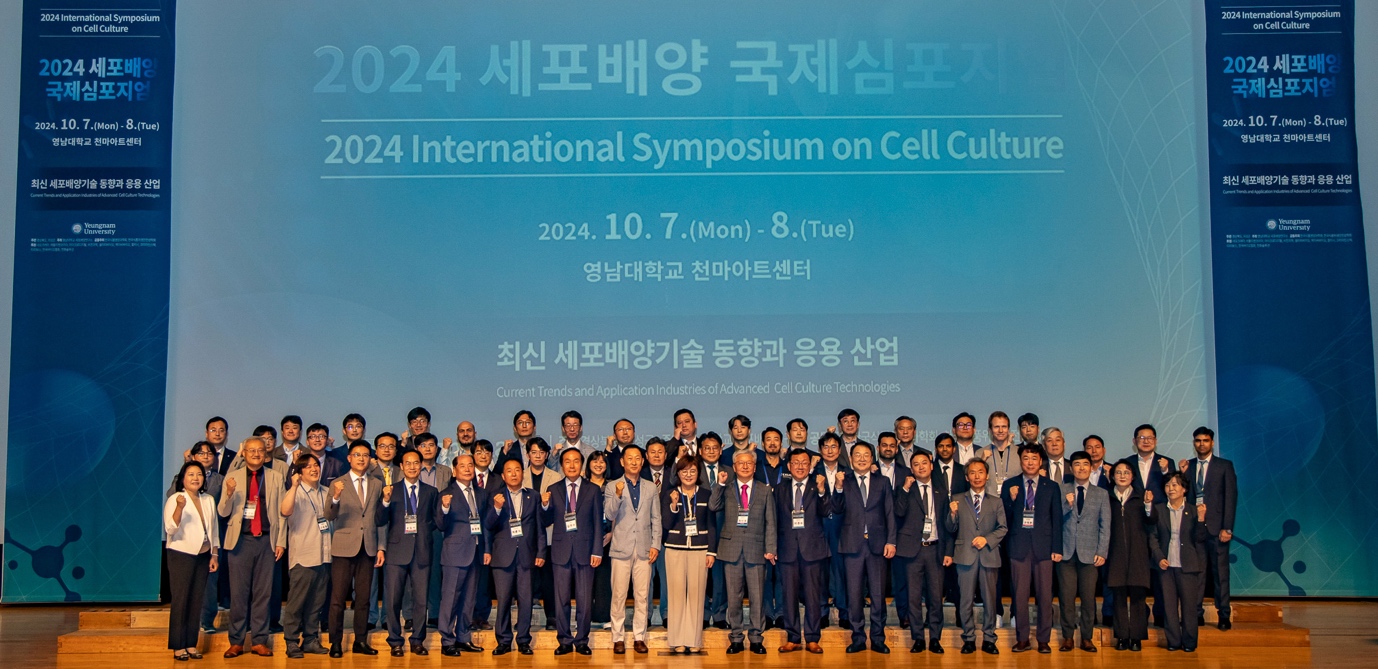
Yeungnam University (President CHOI Oe-chool) successfully concluded the "2024 International Symposium on Cell Culture," the largest symposium of its kind in Korea, focusing on cell culture and cultured meat.
The symposium was co-organized by YU’s Institute for Cell Culture (Director: Prof. CHOI In-ho, Department of Medical Biotechnology), the Korean Society of Food and Nutrition Science, and the Korean Society of Food Hygiene and Safety, and was supported by Gyeongsangbuk-do and Uiseong-gun. The event drew over 1,000 participants, including representatives from 41 universities, 31 government agencies and institutions, and more than 100 companies.
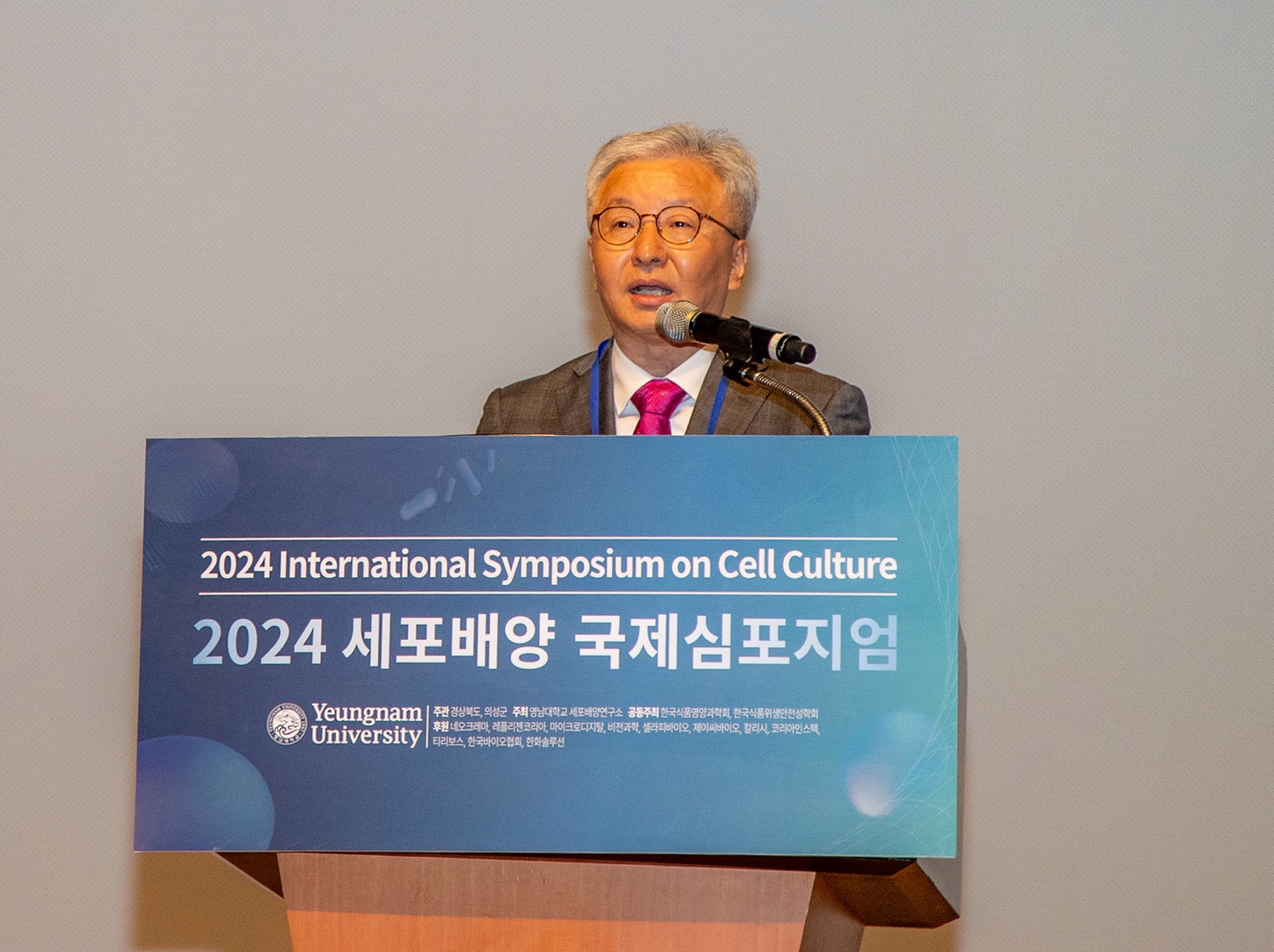
<Prof. CHOI In-ho, Director of YU’s Institute for Cell Culture, delivering an opening speech.>
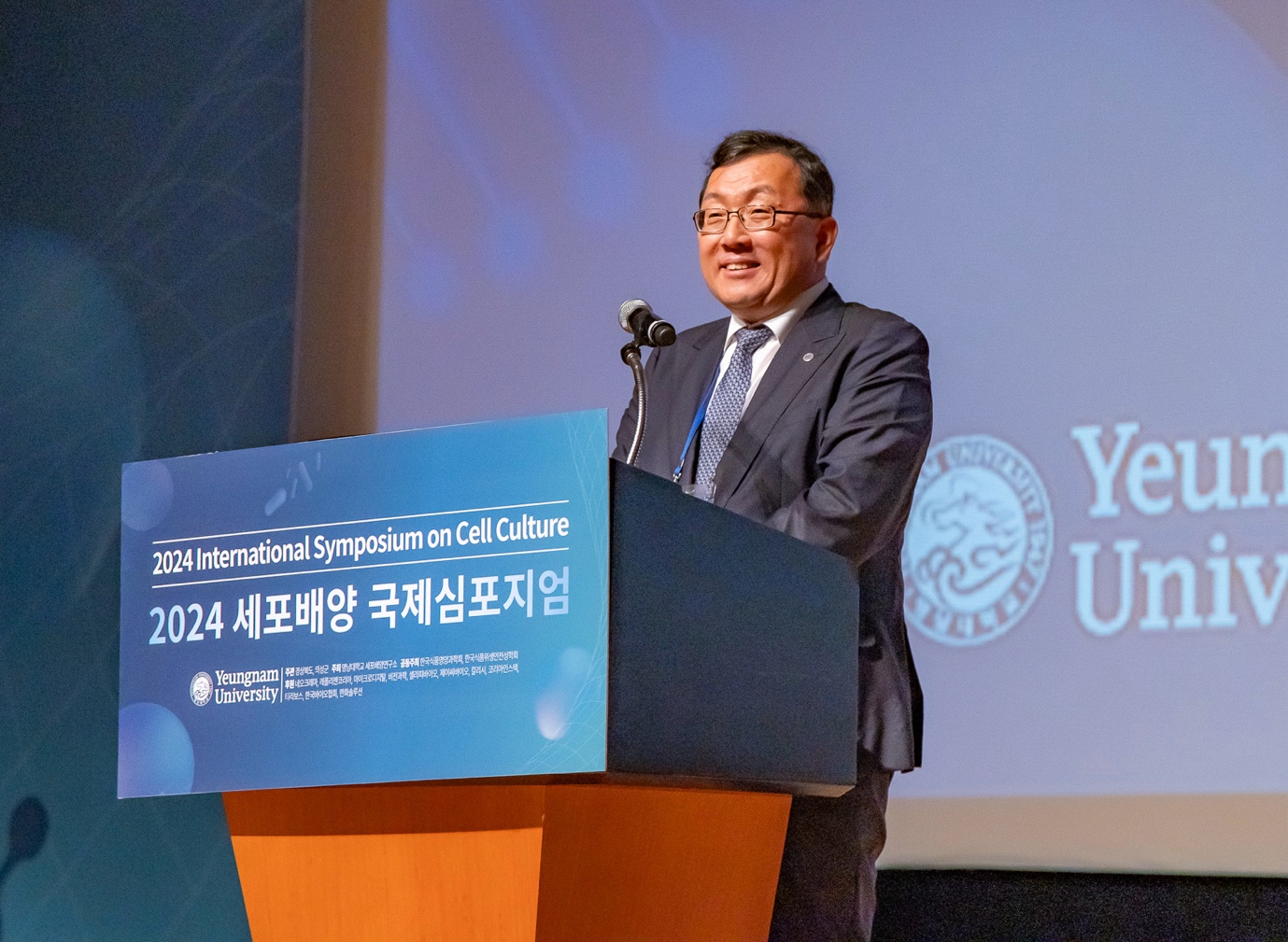
<YU’s Vice President for Industry-Academia Cooperation, LEE Kyung-soo, giving a congratulatory speech.>
Held under the theme “Trends in Advanced Cell Culture Technologies and Industrial Applications,” the symposium attracted over 200 industry professionals from 100 leading companies, including Samsung Bioepis, Celltrion, Hanwha Solutions, Lotte Chemical, SK Bioscience, Daesang, CJ, Ottogi, Sempio Foods, Pulmuone, and Ildong Foodis, demonstrating significant interest from the industry.
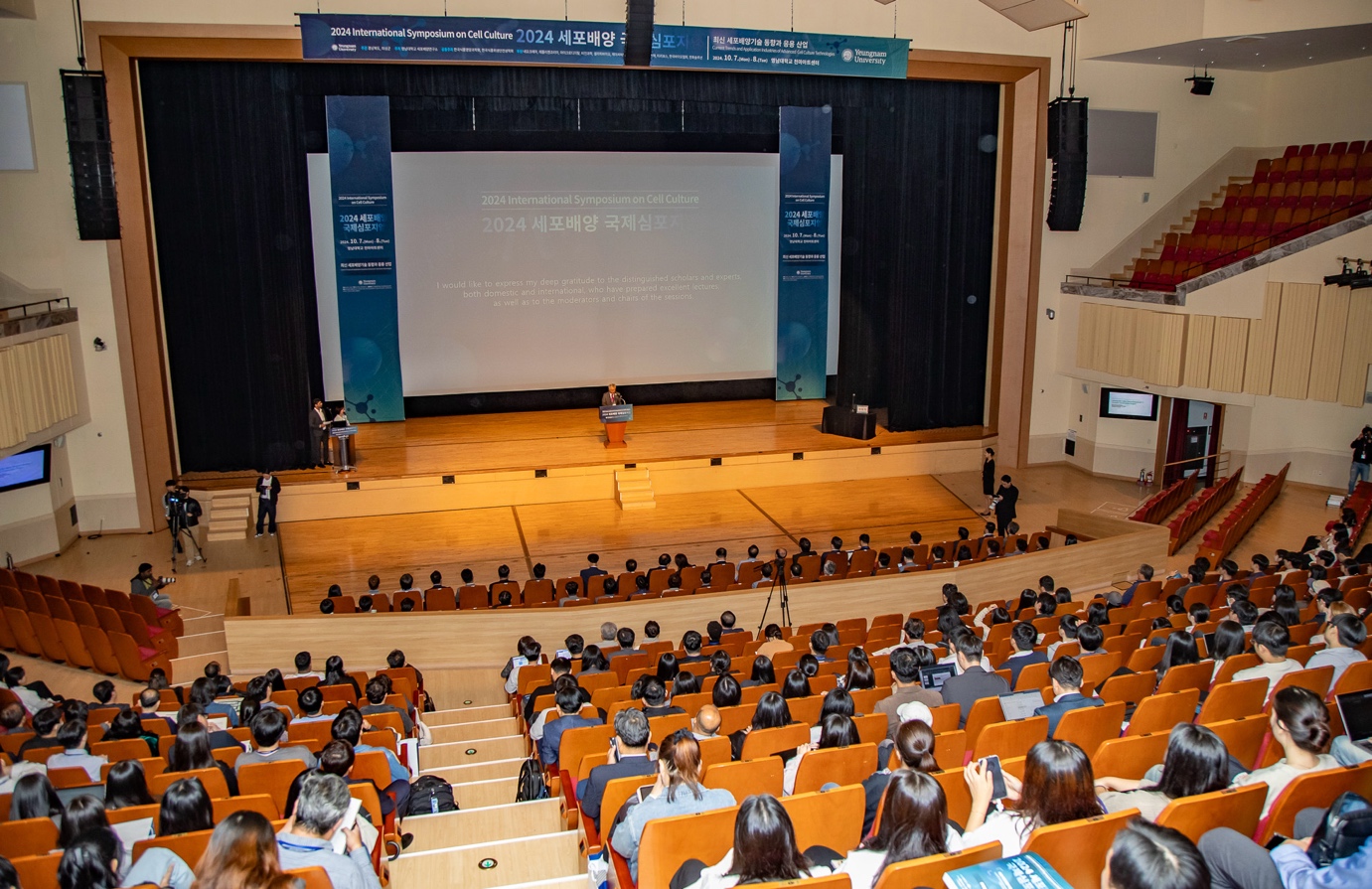
The symposium featured three key sessions: ▲Cutting-edge Theories and Technologies in Cell Culture, ▲Research and Industry Trends in Cultured Meat, and ▲Industrialization Strategies for Natural Products: Merging In Silico Technologies with Cell Culture. On the first day (October 7), KO Han-seung, President of the Korea Bio Association, delivered the keynote lecture on “The Importance of Cell Culture Technology and the Need for Regional Infrastructure Development.” Following the keynote, there were presentations and discussions on topics such as ▲Methods for Structuring Cultured Meat ▲The Current Status and Future of Organoid Technology Commercialization ▲Developing Pharmaceutical and Functional Food Materials for Treating Chronic Inflammatory Diseases Using Natural Products. On the second day (October 8), Bruce Friedrich, President of The Good Food Institute, a global nonprofit organization, gave a keynote lecture titled “The Next Agricultural Revolution,” which explored sustainable food production through biotechnology. Further sessions followed, covering topics like ▲Developing Bio-technology for Sustainable Future Food Production ▲Cell Culture Processes for Producing High-Quality Antibody Pharmaceuticals ▲Accelerating New Drug Development Using Artificial Intelligence. A cultured meat-tasting event, held at the Cheonma Art Center Grand Hall lobby, also garnered considerable attention. Attendees sampled cultured meat made from chicken muscle stem cells, a project co-hosted by Prof. CHOI In-ho and Prof. HUH Sun-jin from Chung-Ang University, who is conducting joint research with the Ministry of Agriculture, Food, and Rural Affairs’ High-Value Food Technology Development Project.
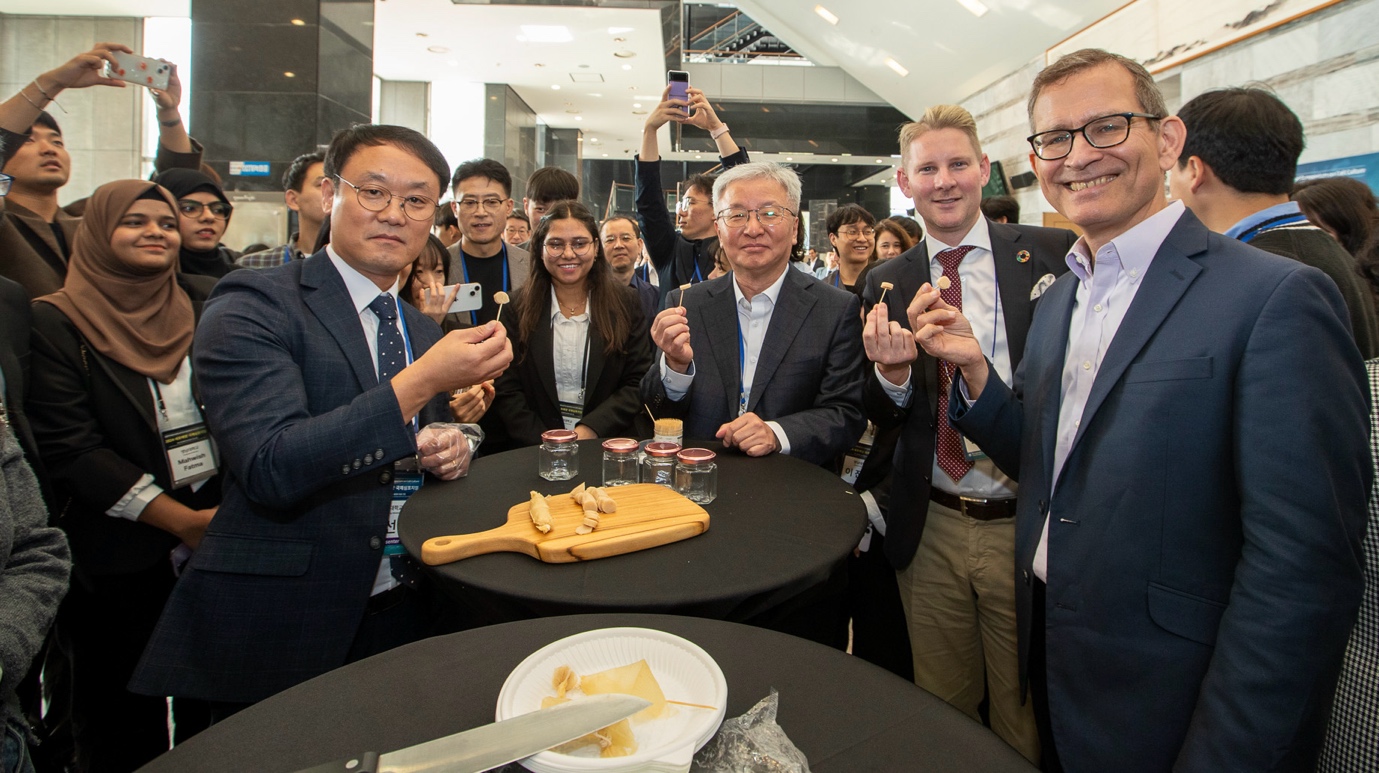
<Participants show great interest in the cultured meat tasting event, where chicken muscle stem cell-derived meat was showcased at the Cell Culture International Symposium.>
Traditionally, the "meat" humans consume consists primarily of skeletal muscle attached to bones. The flavor of meat is determined not only by the muscle itself but also by the surrounding tissues, including fat, blood vessels, nerves, and connective tissues. Recently, the use of cell culture technology combined with muscle stem cells to produce so-called "cultured meat" has sparked significant interest from both the industry and academia, as well as governmental organizations around the world.
The key to cultured meat production lies in how effectively muscle stem cells can be cultured to replicate the structure of real meat. Prof. CHOI In-ho (Department of Medical Biotechnology), a leading authority in muscle stem cells and cell culture, has been at the forefront of YU’s Institute for Cell Culture since its establishment in 2017. Prof. CHOI began conceptualizing the "Cell Culture Industrialization Hub Center" project in 2014 with support from Gyeongsangbuk-do and Uiseong-gun. The institute, officially opened in 2017, came into being through the combined efforts of several YU professors who had participated in the project.
YU’s Institute for Cell Culture has been recognized for its achievements in research and collaboration with local governments and industries. Since 2020, the institute has been selected for three major government-funded projects: the Ministry of Education’s "University Key Research Institute Support Program in Science and Engineering," the "K-U City Project Pilot Program" in 2023, and the "In Silico Commercialization Infrastructure Project" in 2024. The institute has also played a pivotal role in establishing the Gyeongbuk Cell Culture Industry Support Center in Uiseong-gun, where a branch of YU’s Institute for Cell Culture is located. This center supports research and development in in silico technologies and trains specialized personnel for the cell culture industry. These efforts have positioned YU’s Institute for Cell Culture as a model university-affiliated research center. The academic and industrial communities' heightened interest in YU’s cultured meat symposium underscores the university's leadership in the field.
Prof. CHOI In-ho, who organized the symposium, remarked, “Experts from around the world presented on a variety of topics related to cell culture, and the participation of over 100 industry professionals reflects the high level of interest in this field. With national investment and collaboration among academia, industry, government, and research institutions, we hope to further enhance our technological capabilities in cell culture. I believe this international symposium will play a crucial role in positioning Korea as a global leader in the cell culture field.”